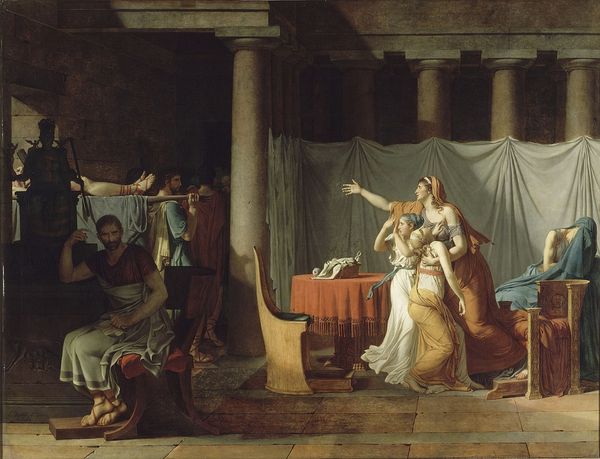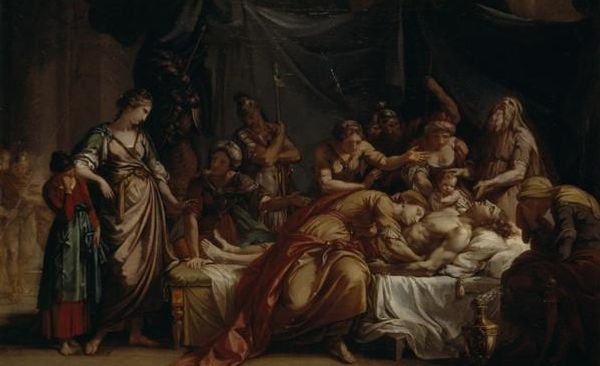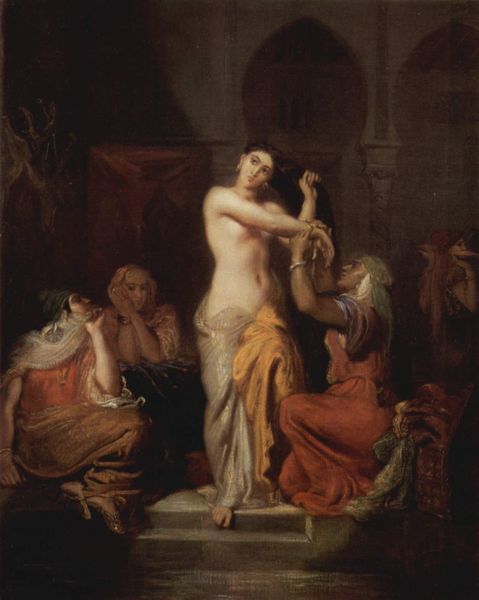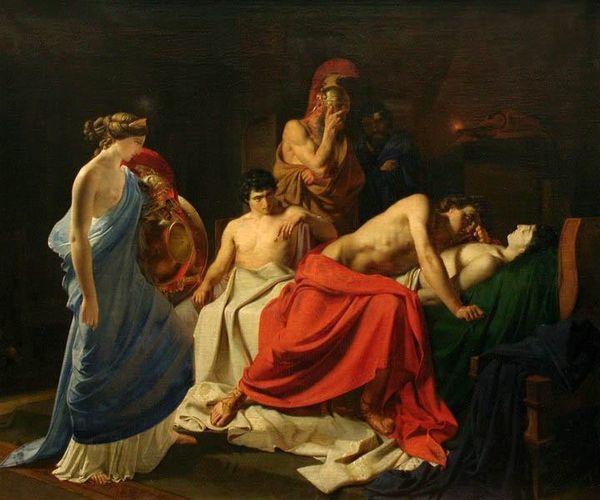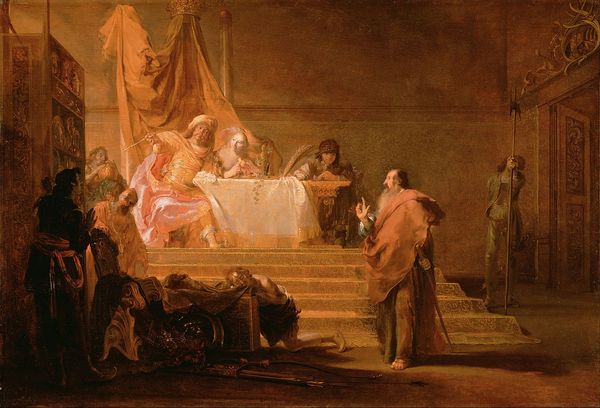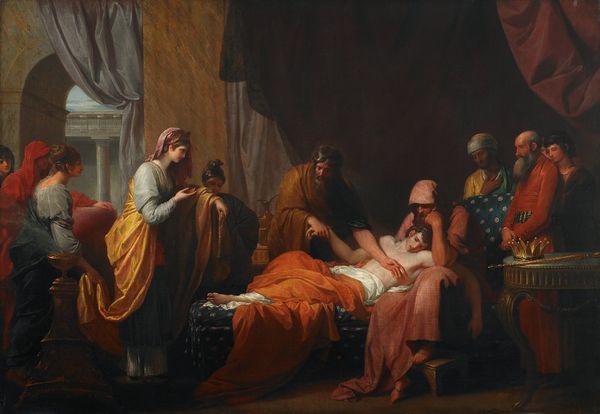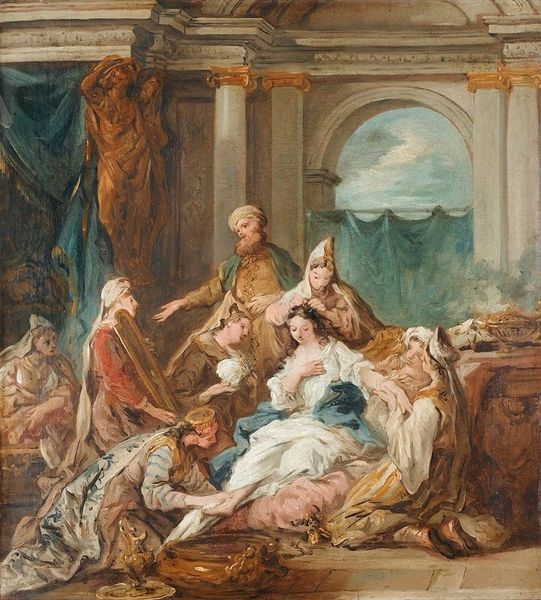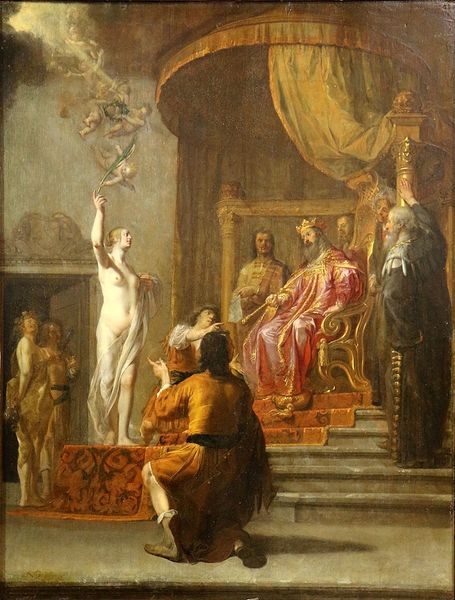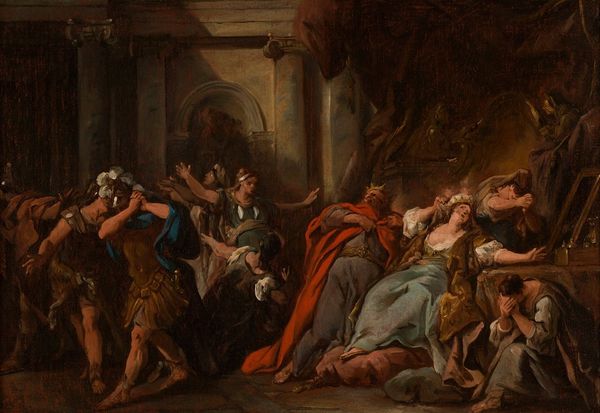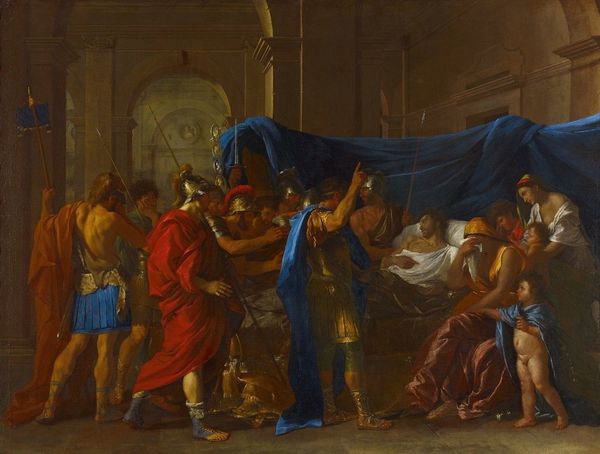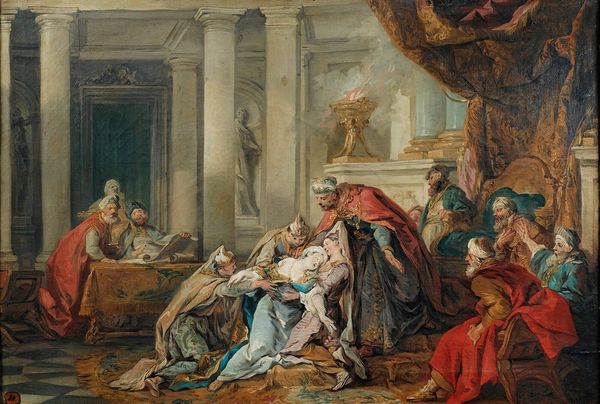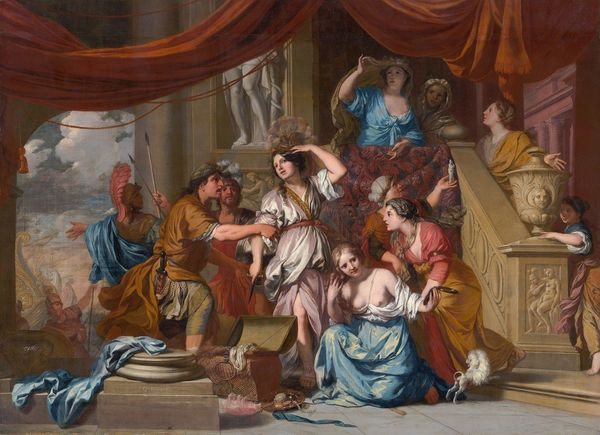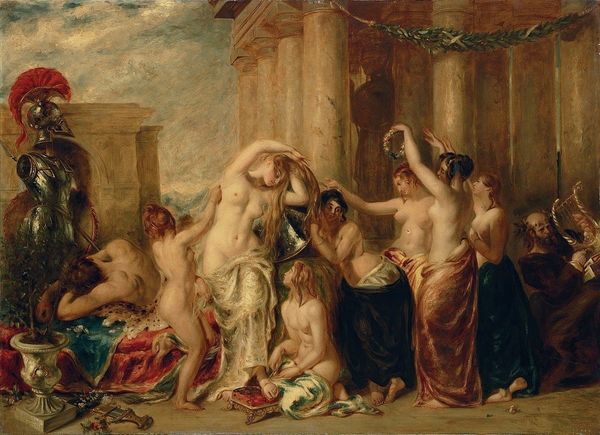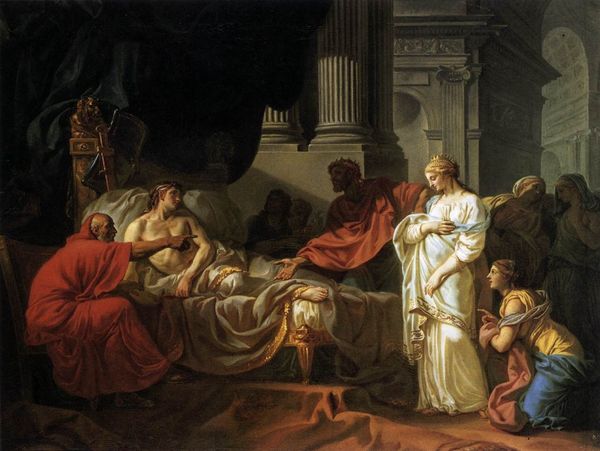
painting, oil-paint
#
portrait
#
gouache
#
figurative
#
neoclacissism
#
narrative-art
#
painting
#
oil-paint
#
figuration
#
oil painting
#
underpainting
#
history-painting
#
academic-art
Copyright: Public Domain: Artvee
Editor: Here we have Jacques-Louis David’s “The Lictors Returning to Brutus the Bodies of his Sons, Study,” an oil painting, I believe, from the late 18th century. It feels very theatrical and somber. What symbols stand out to you in this piece? Curator: It is interesting how David uses classical imagery to evoke a very modern political message, isn't it? Look at the rigid architecture, the draped figures, the stark emotional contrast. Brutus embodies civic duty, but the women’s grief – and its visual prominence – presents a powerful counter-narrative. Does their positioning beside the classical statues, and even matching the coloring, indicate their presence in the memory? Editor: It’s like the women embody the cost of that duty. Curator: Exactly! It reminds me of the ancient Roman concept of pietas, a devotion to family, country, and gods. How do you see that playing out here? Brutus’s pietas to the Republic clashes with the pietas demanded by family ties. Do you notice any iconographic overlap between this conflict and other historical depictions of family tragedy versus duty? Editor: That conflict feels so relevant even today – personal values versus public responsibility. It almost gives the work a timeless quality. Curator: Precisely. David’s work resonated with his own revolutionary times and continues to speak to the complexities of political and moral choices across history. Notice too that he never paints the actual murder, just its tragic consequence and the grief that stems from such ideological rigidity. Is there a link in your eyes, to how history selectively presents certain traumas versus others? Editor: Yes, it certainly offers much to consider about public versus private sorrow. Thanks for highlighting these themes. Curator: My pleasure. It’s fascinating to see how David layered visual symbolism and political commentary in this iconic artwork and it has been lovely exploring how tragedy and family values carry through centuries in the visual language of this art.
Comments
No comments
Be the first to comment and join the conversation on the ultimate creative platform.
